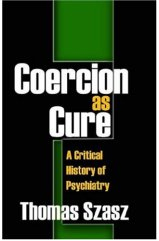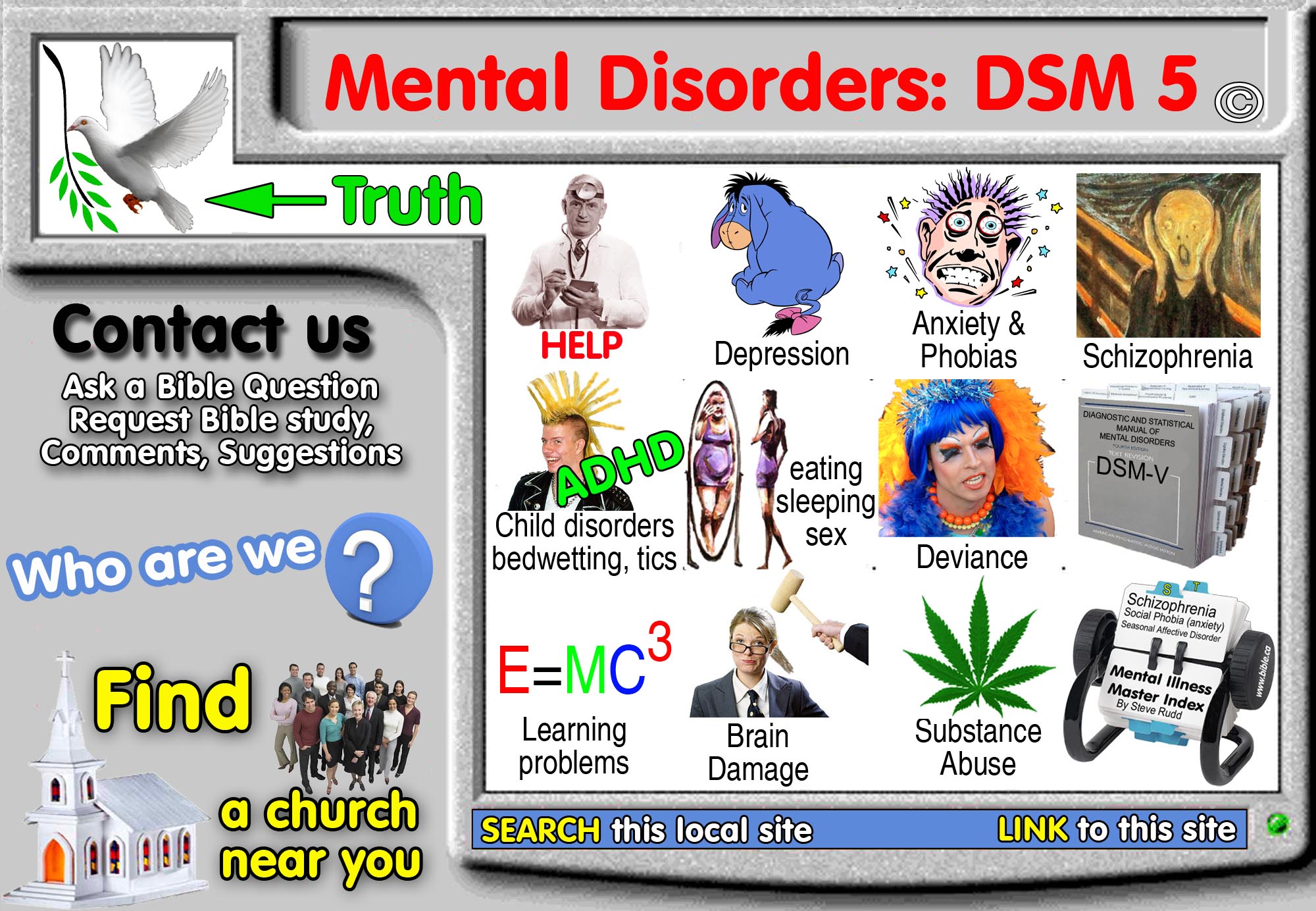|
Psychiatry: Coercion as Cure |
|
|
Thomas Szasz is an atheist libertarian and not a Scientologist. He views schizophrenia as a behaviour choice, rejects all physical etiologies of "insanity" and is opposed to all involuntary commitment to mental hospitals. Thomas Szasz is an honorable warrior for truth whose importance will only be recognized in coming decades. |
|
- I have never harbored any patriotic sentiments toward psychiatry. My aim has been to abolish psychiatric slavery, not reform it." (Coercion as Cure, Thomas Szasz, 2007 AD, p 12)
- "To be sure, as long as we define psychiatry as a medical specialty, we are compelled to define coercion as care, and the deprivation of liberty under psychiatric auspices as both the prevention of suicide or homicide and the provision of therapy. Abolishing psychiatric slavery—that is, the practice of depriving of persons defined as mental patients of liberty by incarceration in hospitals—requires stripping the psychiatrist of the privilege and power to lock up people. Such a change presupposes recognition and acceptance of the fact that forcibly depriving a person of liberty is not medical care." (Coercion as Cure, Thomas Szasz, 2007 AD, p 225)
- "The fact that it is coercion that sets psychiatry apart from medicine, and indeed from all other forms of peaceful human endeavors, is obvious. The law prohibits coerced medical treatment, but permits and indeed mandates coerced psychiatric treatment. The psychiatrist says that the mental patient who rejects his help denies that he is ill. I say that the psychiatrist who uses force to impose diagnoses and treatments on a person against his will denies that he practices coercion. The central issue facing psychiatry and our society today is not whether a particular psychiatric intervention works or does not, whether it helps or harms the patient, whether it is therapeutic or toxic, whether it prevents suicide or promotes it. The central issue is whether contact between psychiatrist and patient is voluntary or involuntary, consensual or coercive. All other issues are secondary." (Coercion as Cure, Thomas Szasz, 2007 AD, p 226)
- "Madness and its synonyms are fuzzy terms. It is clear, however, that mad persons are unwanted persons and that we use the term broadly to refer to abnormal, unwanted behavior." As a rule, a person behaves "madly" for reasons of his own, that is, because of the particular adaptation he has made to the events that comprise his life." (Coercion as Cure, Thomas Szasz, 2007 AD, p 24)
By Steve Rudd: Contact the author for comments, input or corrections.
Send us your story about your experience with modern Psychiatry


